Marketing Automation Tools: Revolutionizing the Way Businesses Connect with Customers

In today's digital age, businesses are constantly seeking innovative ways to streamline their marketing efforts and connect with customers more effectively. One such solution that has gained significant popularity is marketing automation tools. These tools have revolutionized the way businesses interact with their target audience, enabling them to automate repetitive tasks, personalize customer experiences, and drive revenue growth. In this article, we will explore the concept of marketing automation tools, their benefits, and some popular options available in the market.
- Understanding Marketing Automation Tools
- The Benefits of Marketing Automation Tools
- 1. Increased Efficiency and Productivity
- 2. Personalized Customer Experiences
- 3. Lead Nurturing and Conversion
- 4. Improved Campaign Tracking and Analytics
- 5. Enhanced Sales and Revenue Growth
- Popular Marketing Automation Tools
- 1. HubSpot
- 2. Marketo
- 3. Pardot
- 4. Mailchimp
- 5. ActiveCampaign
- Conclusion
Understanding Marketing Automation Tools
Marketing automation tools refer to software platforms that help businesses automate their marketing activities, such as email marketing, social media posting, lead generation, and customer segmentation. These tools leverage advanced technologies like artificial intelligence and machine learning to streamline marketing processes, improve efficiency, and enhance customer engagement.
Marketing automation tools provide businesses with a centralized platform to manage and execute their marketing campaigns. They offer a wide range of features, including email marketing automation, lead nurturing, customer segmentation, campaign tracking, and analytics. These tools enable businesses to create personalized and targeted marketing campaigns, automate repetitive tasks, and track the performance of their marketing efforts.
The Benefits of Marketing Automation Tools
Implementing marketing automation tools can bring numerous benefits to businesses of all sizes. Let's explore some of the key advantages:
1. Increased Efficiency and Productivity
Marketing automation tools eliminate the need for manual execution of repetitive marketing tasks. By automating processes like email marketing, social media posting, and lead generation, businesses can save time and resources, allowing their marketing teams to focus on more strategic activities. This increased efficiency and productivity can lead to better campaign results and overall business growth.
2. Personalized Customer Experiences
Marketing automation tools enable businesses to create personalized customer experiences by segmenting their audience based on various criteria, such as demographics, behavior, and purchase history. By delivering targeted and relevant content to each segment, businesses can enhance customer engagement and build stronger relationships. Personalization also helps in improving conversion rates and customer loyalty.
3. Lead Nurturing and Conversion
Marketing automation tools provide businesses with the ability to nurture leads throughout the customer journey. These tools allow businesses to send automated follow-up emails, personalized recommendations, and targeted offers based on customer behavior and preferences. By nurturing leads effectively, businesses can increase their chances of converting prospects into paying customers.
4. Improved Campaign Tracking and Analytics
Marketing automation tools offer robust tracking and analytics capabilities, allowing businesses to measure the performance of their marketing campaigns accurately. These tools provide insights into key metrics like open rates, click-through rates, conversion rates, and revenue generated. By analyzing these metrics, businesses can identify areas for improvement, optimize their campaigns, and make data-driven decisions.
5. Enhanced Sales and Revenue Growth
By automating marketing processes, personalizing customer experiences, and nurturing leads effectively, businesses can drive sales and revenue growth. Marketing automation tools help businesses identify high-quality leads, prioritize them based on their readiness to purchase, and deliver targeted content to move them through the sales funnel. This targeted approach increases the chances of closing deals and generating revenue.
Popular Marketing Automation Tools
There are numerous marketing automation tools available in the market, each offering unique features and capabilities. Let's take a look at some popular options:
1. HubSpot
HubSpot is a leading marketing automation platform that offers a comprehensive suite of tools for businesses of all sizes. It provides features like email marketing automation, lead nurturing, customer segmentation, social media management, and analytics. HubSpot's user-friendly interface and extensive integrations make it a popular choice among marketers.
2. Marketo
Marketo is a robust marketing automation platform designed for enterprise-level businesses. It offers advanced features like lead scoring, advanced analytics, A/B testing, and account-based marketing. Marketo's powerful automation capabilities and scalability make it an ideal choice for large organizations with complex marketing needs.
3. Pardot
Pardot, a Salesforce product, is a B2B marketing automation platform that helps businesses streamline their lead generation and nurturing processes. It offers features like email marketing automation, lead scoring, CRM integration, and ROI reporting. Pardot's seamless integration with Salesforce CRM makes it a preferred choice for businesses using Salesforce as their CRM system.
4. Mailchimp
Mailchimp is a popular marketing automation tool known for its user-friendly interface and affordability. It offers features like email marketing automation, audience segmentation, landing page creation, and basic analytics. Mailchimp's simplicity and extensive integrations make it a suitable choice for small and medium-sized businesses.
5. ActiveCampaign
ActiveCampaign is a versatile marketing automation platform that offers a wide range of features, including email marketing automation, CRM integration, lead scoring, and advanced segmentation. It also provides advanced automation workflows and conditional logic, allowing businesses to create highly personalized and targeted campaigns.
Conclusion
Marketing automation tools have transformed the way businesses connect with their customers. These tools enable businesses to automate repetitive tasks, personalize customer experiences, and drive revenue growth. By implementing marketing automation tools, businesses can increase efficiency, deliver personalized content, nurture leads effectively, track campaign performance, and drive sales and revenue growth. With a wide range of options available in the market, businesses can choose a marketing automation tool that best suits their needs and objectives. Embracing marketing automation is no longer an option but a necessity for businesses looking to stay competitive in today's digital landscape.
Learn More :
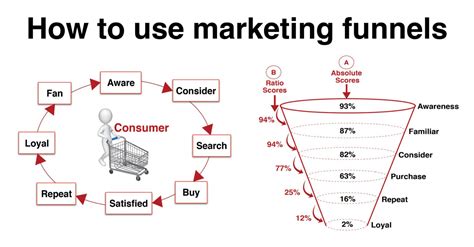 Marketing Funnel Optimization: Maximizing Conversion Rates and Revenue
22 December 2023 by Admin
Marketing Funnel Optimization: Maximizing Conversion Rates and Revenue
22 December 2023 by Admin
Marketing funnel optimization is a crucial aspect of any successful marketing strategy. It involves analyzing and improving each stage of the marketing funnel to maximize conversion rates and revenue....
 Affiliate Marketing Programs: A Comprehensive Guide
22 December 2023 by Admin
Affiliate Marketing Programs: A Comprehensive Guide
22 December 2023 by Admin
Affiliate marketing programs have gained immense popularity in recent years as a lucrative way for individuals and businesses to earn passive income. This comprehensive guide will provide you with an ...
 Influencer Marketing Campaigns: A Powerful Strategy for Brand Promotion
22 December 2023 by Admin
Influencer Marketing Campaigns: A Powerful Strategy for Brand Promotion
22 December 2023 by Admin
In today's digital age, influencer marketing has emerged as one of the most effective strategies for brand promotion. With the rise of social media platforms, influencers have gained significant popul...
![The Complete List of Types of Marketing [30+ Effective Strategies]](/image/blogihisinfo/Video-marketing-strategies.jpg) Video Marketing Strategies: Boosting Your Business with Visual Content
22 December 2023 by Admin
Video Marketing Strategies: Boosting Your Business with Visual Content
22 December 2023 by Admin
In today's digital age, video marketing has become an essential tool for businesses to reach and engage with their target audience. With the rise of social media platforms and the increasing popularit...
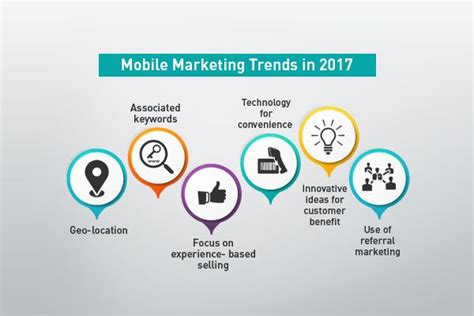 Mobile Marketing Trends: The Future of Digital Advertising
22 December 2023 by Admin
Mobile Marketing Trends: The Future of Digital Advertising
22 December 2023 by Admin
Mobile marketing has become an essential part of any successful digital advertising strategy. With the increasing use of smartphones and tablets, businesses are realizing the importance of reaching th...
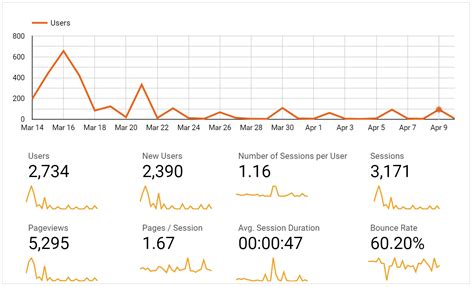 Digital Marketing Analytics: Unlocking the Power of Data
22 December 2023 by Admin
Digital Marketing Analytics: Unlocking the Power of Data
22 December 2023 by Admin
In today's digital age, businesses are constantly seeking ways to gain a competitive edge. One of the most effective strategies is leveraging digital marketing analytics to make data-driven decisions....
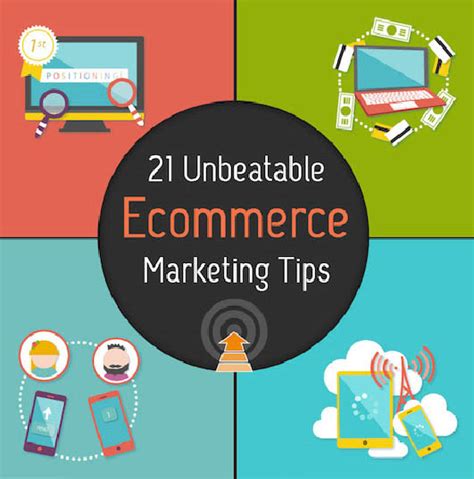 E-commerce Marketing: Boosting Your Online Business
22 December 2023 by Admin
E-commerce Marketing: Boosting Your Online Business
22 December 2023 by Admin
E-commerce marketing has become an essential strategy for businesses looking to thrive in the digital age. With the rise of online shopping, it is crucial for companies to establish a strong online pr...
 Email Marketing Solutions: Boosting Your Business with Effective Communication
22 December 2023 by Admin
Email Marketing Solutions: Boosting Your Business with Effective Communication
22 December 2023 by Admin
In today's digital age, email marketing has become an essential tool for businesses to reach out to their target audience and promote their products or services. With the right email marketing solutio...
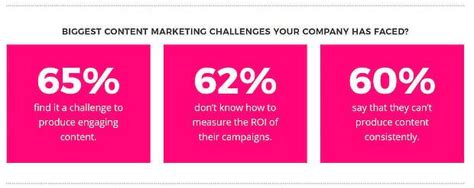 Content Marketing Strategy: A Comprehensive Guide
22 December 2023 by Admin
Content Marketing Strategy: A Comprehensive Guide
22 December 2023 by Admin
Content marketing has become an essential component of any successful marketing strategy. It involves creating and distributing valuable, relevant, and consistent content to attract and retain a clear...
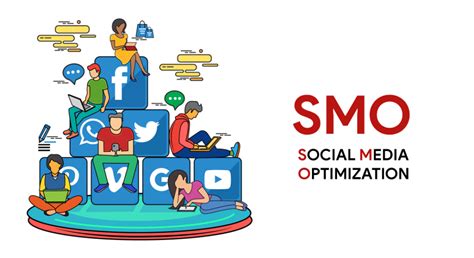 Social Media Marketing Agency: Boosting Your Online Presence
22 December 2023 by Admin
Social Media Marketing Agency: Boosting Your Online Presence
22 December 2023 by Admin
In today's digital age, social media has become an integral part of our lives. It has transformed the way we communicate, connect, and consume information. With billions of active users on various soc...
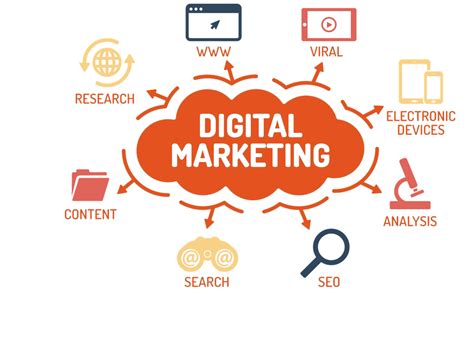 The Importance of Digital Marketing Services
22 December 2023 by Admin
The Importance of Digital Marketing Services
22 December 2023 by Admin
In today's digital age, businesses need to have a strong online presence in order to stay competitive. This is where digital marketing services come into play. Digital marketing encompasses a wide ran...
 The Rise of Big Data Analyst Jobs
22 December 2023 by Admin
The Rise of Big Data Analyst Jobs
22 December 2023 by Admin
In today's digital age, data has become one of the most valuable assets for businesses. With the increasing amount of information being generated every second, companies are now turning to big data an...
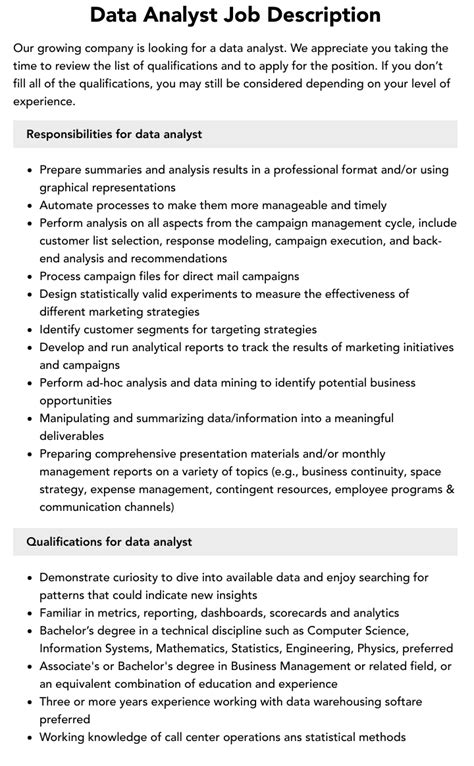 The Job Description of a Big Data Analyst
22 December 2023 by Admin
The Job Description of a Big Data Analyst
22 December 2023 by Admin
Big data has become an integral part of many industries, and companies are increasingly relying on data analysis to make informed decisions. As a result, the demand for big data analysts has grown sig...
 Big Data Analyst in Southwest
22 December 2023 by Admin
Big Data Analyst in Southwest
22 December 2023 by Admin
Big data has become an integral part of businesses across various industries. It refers to the massive volume of structured and unstructured data that organizations collect on a daily basis. This data...
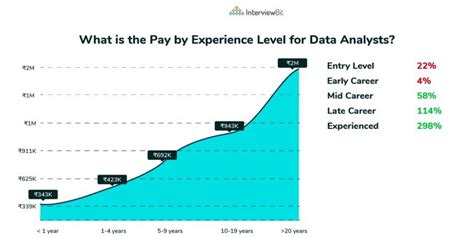 The Salary of a Big Data Analyst: Exploring the Lucrative Career Path
22 December 2023 by Admin
The Salary of a Big Data Analyst: Exploring the Lucrative Career Path
22 December 2023 by Admin
Big data has become an integral part of modern businesses, and the demand for skilled professionals who can analyze and interpret this vast amount of information is on the rise. One such profession th...
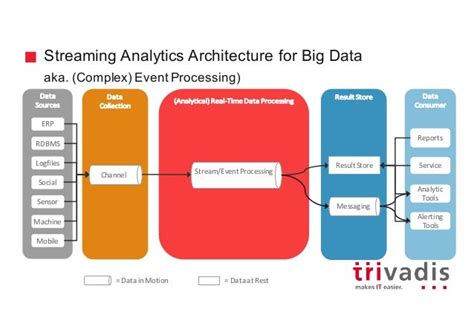 Big Data Analytics Architecture: Unlocking the Power of Data
22 December 2023 by Admin
Big Data Analytics Architecture: Unlocking the Power of Data
22 December 2023 by Admin
Big data analytics has emerged as a game-changer in today's data-driven world. With the exponential growth of data, organizations are realizing the need to harness the power of big data to gain valuab...
 Big Data Engineer vs Big Data Analyst: Understanding the Roles and Responsibilities
22 December 2023 by Admin
Big Data Engineer vs Big Data Analyst: Understanding the Roles and Responsibilities
22 December 2023 by Admin
In today's digital age, data has become the lifeblood of businesses across industries. The ability to collect, analyze, and derive insights from large volumes of data has become crucial for organizati...
 How to Become a Big Data Analyst
22 December 2023 by Admin
How to Become a Big Data Analyst
22 December 2023 by Admin
Big data has become an integral part of many industries, and the demand for skilled big data analysts is on the rise. These professionals are responsible for analyzing large sets of data to uncover pa...
 Big Data Analytics: Definition and Importance
22 December 2023 by Admin
Big Data Analytics: Definition and Importance
22 December 2023 by Admin
Big data analytics refers to the process of examining large and complex datasets to uncover hidden patterns, correlations, and other valuable insights. It involves the use of advanced analytics techni...
 Big Data Analytics Companies: Revolutionizing Data-driven Decision Making
22 December 2023 by Admin
Big Data Analytics Companies: Revolutionizing Data-driven Decision Making
22 December 2023 by Admin
In today's digital age, data is being generated at an unprecedented rate. From social media posts to online transactions, every interaction leaves a digital footprint. This massive amount of data, kno...
 Big Data Analytics Applications: Revolutionizing Industries
22 December 2023 by Admin
Big Data Analytics Applications: Revolutionizing Industries
22 December 2023 by Admin
Big data analytics has emerged as a game-changer in various industries, revolutionizing the way businesses operate and make decisions. With the exponential growth of data in today's digital world, org...
 Big Data Analyst at Southwest Airlines
22 December 2023 by Admin
Big Data Analyst at Southwest Airlines
22 December 2023 by Admin
Southwest Airlines is one of the largest low-cost carriers in the world, serving millions of passengers each year. With a commitment to providing excellent customer service and affordable travel optio...
 The Importance of Big Data Analyst Certification
22 December 2023 by Admin
The Importance of Big Data Analyst Certification
22 December 2023 by Admin
In today's digital age, data has become one of the most valuable assets for businesses. The ability to collect, analyze, and interpret large volumes of data has become crucial for making informed busi...
 Senior Big Data Analyst Certification: Unlocking the Power of Data
22 December 2023 by Admin
Senior Big Data Analyst Certification: Unlocking the Power of Data
22 December 2023 by Admin
In today's digital age, data has become the new currency. Organizations across industries are collecting vast amounts of data, but the real value lies in the ability to analyze and derive insights fro...
 The Role of Business Analyst in Big Data
22 December 2023 by Admin
The Role of Business Analyst in Big Data
22 December 2023 by Admin
Big data has become a buzzword in the business world, and organizations are increasingly relying on it to gain insights and make informed decisions. However, the sheer volume and complexity of big dat...